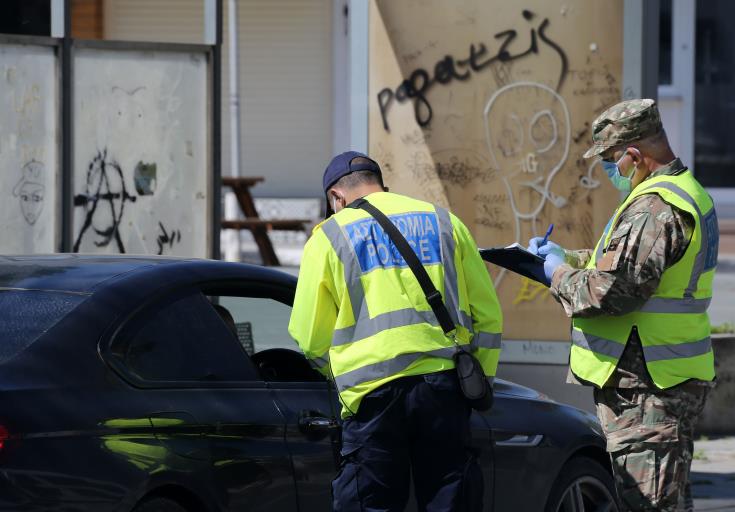Cyprus on Monday will gradually lift the second national lockdown with the curfew remaining in place, hospitality venues still closed but retail shops opening, and limited home visits allowed.
On Wednesday, Health Minister Constantinos Ioannou presented the first stage of the roadmap that Cyprus will follow until mid-February to end a second strict lockdown the country has been under since 10 January.
Ioannou stressed that lifting measures will be a “very slow, coordinated, and controlled process, allowing authorities to monitor and respond to any outbreaks”.
He said that decisions were not taken solely based on the declining number of daily cases in mind, but other epidemiological indicators such as the situation in hospitals, which remains quite difficult.
“Our attention is focused on people who are hospitalized in a serious condition in Intensive Care Units,” said Ioannou.
In the first stage of unlocking society and the economy, people will still only be allowed to leave their home twice a day, but retail shops, malls and schools will be reopening on 8 February.
Starting Monday businesses can have 50% of their staff present, up from 25%, while hairdressers, barbershops and beauty parlours can reopen.
House visits will be allowed, on the conditions that not more two people will be visiting a household only first or second-degree relatives.
Businesses are obliged to have 20% of their staff-tested every week.
Hospitality will remain closed with cafes and restaurants only allowed to cater for takeaways or delivery.
All social and public gatherings remain banned, as are grassroots sporting activities and gyms.
Shops in malls and department stores are to open on 8 February.
Elementary school and final year high school students are also to return to class on 8 February.
Betting shops will also be allowed to reopen, but customers will only be allowed to place their bet and then leave.
As of 8 February, a maximum of 50 churchgoers will be allowed to attend a service. House visits will be increased to four people at a time.
The Health Minister said phasing out restrictions will be backed by extensive testing, vaccinations, and strict monitoring of measures.
“Therefore, we want to make the most out of rapid tests, to reduce the risk of spreading the virus in the workplace and the general population.
“The Ministry of Health has developed a targeted plan with rapid tests in the workplace for all groups of workers,” said Ioannou.
He said that businesses will have the responsibility to make sure that a minimum of 20% of their staff physically present has been tested each week.
“That is why we are increasing mobile testing units from 25 to 40.”
Vaccines
Ioannou said his Ministry has taken into consideration concerns and warnings from EU bodies on a new more potent strain of the virus found in the UK.
He said that the most important tool in the hands of health authorities to combat the virus is mass vaccinations.
“Despite the delay in the supply of vaccines, we are optimistic that we will cover lost ground because we have ordered many more vaccines than the population of Cyprus,” said Ioannou.
Cyprus, with a population of under a million, has ordered around 3.5 million vaccine doses through the European Union.
“Our target is to complete the vaccination of the over 80s and frontline health professionals by the beginning of March, and 100,000 of our fellow citizens should be vaccinated at the end of March.
“This way, we will be able to protect the Health System while lifting more measures,” said Ioannou.
Covid-19 cases have subsided to under 200 daily while hospital admissions have eased.
The Health Ministry registered 109 new virus cases on Tuesday, taking the total number of recorded infections to 30,252.










